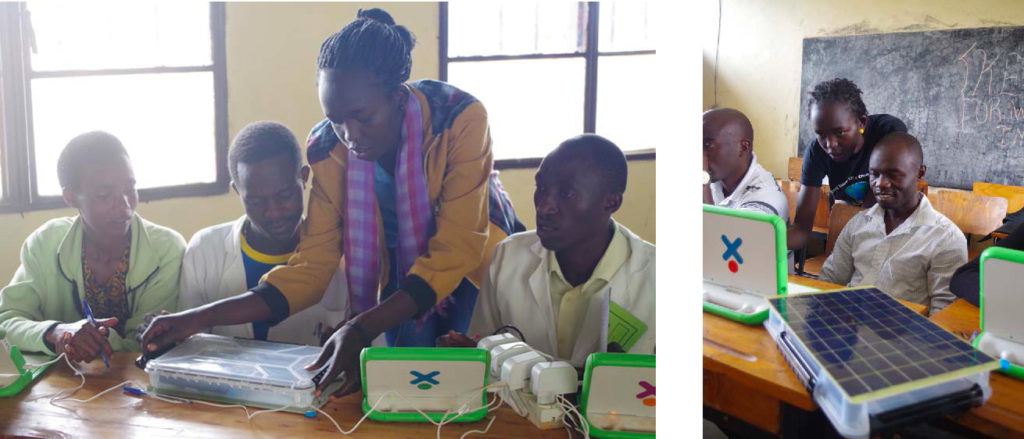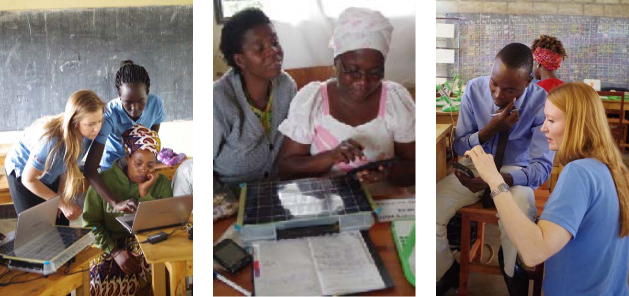Rwanda and South Sudan Field Report
Diing is a Bridge2Rwanda Scholar who interned for SolarSPELL. During her internship, she was a part of the school support team conducting follow-up visits to our five pilot schools, as well as, providing support to our South Sudan pilot schools. The following is an excerpt from her experience:
My craving and hunger for knowledge has always made me think of how I can best improve education in my home country—South Sudan. This desire arose from the fact that I started school in an area designated with very few classroom materials like textbooks. So, I have always thought how I could help other children get access to educational materials. Therefore, when I heard about SolarSPELL for the first time in June, when I was still in the gap year program at Bridge2Rwanda, I immediately knew that this organization was going to be the pathway to fulfillment of this desire. I was, thus, confident that with the mission of SolarSPELL: providing educational materials to resource constrained areas, I was happy that I would be able to have a deeper understanding of my country’s educational system.
Hence, while working on the SolarSPELL project and training teachers across Rwanda to best utilize resources provided by the digital library, which I did from April – June of this year, I was humbled by the excitement and expectations the teachers had about the library. Some teachers went to the extent of saying that finally they were going to be able to improve the level of their students’ knowledge. Other teachers were so happy since the digital library was not only providing resources for their students but also the teachers themselves were learning more about their own country and the world at large. These expectations only stimulated more my desire to work on creating the localized materials that are applicable to Rwanda system.

However, it was not long before I realized that there were still many challenges of dealing with resources in Rwanda and what exactly the teachers expected. I learned then that though I was in the East African region, what I had learned in my primary and high school, which were not in Rwanda, was totally different from the Rwandan system. Thus, I needed more understanding and help from my fellow interns who had better knowledge about what their country’s education system required. With this lesson in mind, I then understood the importance of involving people at the grassroots level who know exactly what their communities needed.
This is why I was grateful to also support SolarSPELL’s pilot schools in South Sudan, my home country. I was privileged to work with SolarSPELL’s partner organization Empower Kids South Sudan on how the SolarSPELL digital library can best serve those communities. For example, I collaborated with them to curate Peace content for the next version of the SolarSPELL library. Furthermore, through my network, I was able to initiate a conversation with an organization that works in primary and secondary schools in Kakuma Refugee Camp to gauge how the SolarSPELL digital library may be able to serve the community in the future.
SolarSPELL has a vision of bringing great hope to those children whose lives depend on education, since what they require are the resources they can use to expand their learning. I also believe students are going to be more passionate about increasing their knowledge because the SolarSPELL digital library will provide the opportunity to access learning materials outside of regular school hours.

